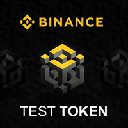-
 Bitcoin
Bitcoin $93,215.1792
0.38% -
 Ethereum
Ethereum $1,786.9436
0.06% -
 Tether USDt
Tether USDt $1.0002
0.00% -
 XRP
XRP $2.2031
-0.65% -
 BNB
BNB $605.3917
-1.23% -
 Solana
Solana $149.2564
0.61% -
 USDC
USDC $0.9995
-0.03% -
 Dogecoin
Dogecoin $0.1750
-3.17% -
 Cardano
Cardano $0.6885
0.13% -
 TRON
TRON $0.2450
-1.16% -
 Sui
Sui $3.0009
9.45% -
 Chainlink
Chainlink $14.7676
3.50% -
 Avalanche
Avalanche $22.0853
-0.60% -
 UNUS SED LEO
UNUS SED LEO $9.1658
1.11% -
 Stellar
Stellar $0.2631
-1.40% -
 Toncoin
Toncoin $3.1435
1.52% -
 Shiba Inu
Shiba Inu $0.0...01329
-3.15% -
 Hedera
Hedera $0.1780
-1.56% -
 Bitcoin Cash
Bitcoin Cash $363.4102
2.45% -
 Polkadot
Polkadot $4.0321
-0.15% -
 Litecoin
Litecoin $83.0675
-1.52% -
 Hyperliquid
Hyperliquid $18.3208
-2.12% -
 Dai
Dai $0.9999
0.01% -
 Bitget Token
Bitget Token $4.5031
-2.45% -
 Ethena USDe
Ethena USDe $0.9994
0.00% -
 Pi
Pi $0.6549
0.92% -
 Monero
Monero $229.4750
1.04% -
 Uniswap
Uniswap $5.9169
0.52% -
 Pepe
Pepe $0.0...08619
-4.92% -
 Aptos
Aptos $5.3142
1.45%
How secure is the network of CPU mining currencies?
CPU mining currencies rely on CPUs to secure networks, with security influenced by hash rate, miner numbers, and robust cryptographic algorithms.
Apr 20, 2025 at 09:56 pm

The security of the network for CPU mining currencies is a crucial topic within the cryptocurrency community. CPU mining currencies rely on the computational power of central processing units (CPUs) to validate transactions and secure the network. This method, while less energy-intensive than GPU or ASIC mining, has its own set of security considerations that are important to understand.
Understanding CPU Mining
CPU mining involves using the processing power of a computer's CPU to solve cryptographic puzzles that validate transactions and add them to the blockchain. This process is fundamental to maintaining the integrity and security of the network. The security of a CPU mining network depends on several factors, including the hash rate, the number of miners, and the robustness of the cryptographic algorithms used.
Hash Rate and Network Security
The hash rate is a critical metric in assessing the security of a CPU mining network. It represents the total combined computational power used to mine and process transactions on the blockchain. A higher hash rate means more computational power is being used, which in turn makes it more difficult for malicious actors to launch a successful attack on the network. For CPU mining currencies, the hash rate is typically lower compared to GPU or ASIC mining, which can affect the overall security of the network.
Number of Miners and Decentralization
The number of miners participating in the network also plays a significant role in its security. A larger number of miners leads to greater decentralization, which is a key principle of blockchain technology. Decentralization helps to prevent any single entity from gaining control over the network, thereby reducing the risk of a 51% attack, where a group of miners control more than half of the network's mining power. For CPU mining currencies, maintaining a diverse and decentralized network of miners is essential for security.
Cryptographic Algorithms and Security
The cryptographic algorithms used in CPU mining currencies are another crucial aspect of network security. These algorithms must be robust and resistant to attacks. Common algorithms used in CPU mining include SHA-256 and Scrypt. The strength of these algorithms directly impacts the security of the network. If a vulnerability is discovered in the algorithm, it could potentially be exploited to compromise the network.
Vulnerabilities and Mitigation Strategies
Despite the inherent security measures, CPU mining networks are not immune to vulnerabilities. One potential vulnerability is the low hash rate, which can make the network more susceptible to attacks. To mitigate this, some CPU mining currencies implement additional security measures such as Proof of Work (PoW) difficulty adjustments to ensure the network remains secure even with a lower hash rate.
Another vulnerability is the potential for centralization if a small number of miners control a significant portion of the network's hash rate. To address this, developers of CPU mining currencies often implement measures to encourage broader participation, such as lower entry barriers for new miners and incentives for small-scale mining.
Practical Steps to Enhance Security
For individuals and organizations involved in CPU mining, there are several practical steps that can be taken to enhance the security of the network:
- Regularly update software: Ensure that mining software and related applications are up to date to protect against known vulnerabilities.
- Use strong passwords and two-factor authentication: Secure your mining accounts with strong passwords and enable two-factor authentication to prevent unauthorized access.
- Monitor network activity: Keep an eye on the network's hash rate and the distribution of mining power to detect any potential centralization or anomalies.
- Participate in community governance: Engage with the community and participate in governance decisions to help maintain the decentralization and security of the network.
Case Studies of CPU Mining Currencies
To illustrate the security aspects of CPU mining networks, let's look at a few case studies:
- Monero (XMR): Monero is a privacy-focused cryptocurrency that uses the RandomX algorithm, which is designed to be ASIC-resistant and favor CPU mining. Monero's network security is maintained through a large and decentralized community of miners, which helps to prevent centralization and enhance security.
- Bitcoin (BTC): While Bitcoin primarily uses ASICs for mining today, it was originally mined using CPUs. The transition to ASICs was driven by the need for greater security and efficiency. However, the principles of network security through hash rate and decentralization remain relevant to CPU mining currencies.
The Role of Community and Education
The community plays a vital role in the security of CPU mining networks. A well-informed and active community can help identify and address potential security issues. Educational resources and initiatives can also play a significant role in enhancing the security of CPU mining networks by raising awareness and promoting best practices among miners.
- Join forums and discussion groups: Participate in online forums and discussion groups related to CPU mining to stay informed about the latest security developments and best practices.
- Attend workshops and webinars: Take advantage of educational opportunities such as workshops and webinars to learn more about securing CPU mining networks.
- Share knowledge and experiences: Contribute to the community by sharing your knowledge and experiences with other miners to help improve overall network security.
Frequently Asked Questions
Q: Can CPU mining be profitable in the current market?
A: The profitability of CPU mining depends on several factors, including the cryptocurrency being mined, the efficiency of the CPU, and the current market conditions. While CPU mining may not be as profitable as GPU or ASIC mining for some cryptocurrencies, it can still be viable for certain CPU-friendly coins. It's important to calculate the costs and potential rewards before starting CPU mining.
Q: What are the environmental impacts of CPU mining compared to other mining methods?
A: CPU mining is generally less energy-intensive than GPU or ASIC mining, which can result in a lower environmental impact. However, the overall environmental impact also depends on the efficiency of the CPUs used and the energy sources powering them. Miners can further reduce their environmental footprint by using renewable energy sources.
Q: How can I protect my CPU mining setup from malware and cyber attacks?
A: To protect your CPU mining setup from malware and cyber attacks, ensure that your operating system and mining software are regularly updated. Use reputable antivirus software and a firewall to guard against malicious attacks. Additionally, avoid downloading mining software from untrusted sources and be cautious of phishing attempts that could compromise your security.
Q: Are there any CPU mining pools that enhance security for participants?
A: Yes, there are several CPU mining pools that prioritize security for their participants. Some popular options include Slush Pool and NiceHash, which offer robust security measures such as encrypted communication, secure wallets, and regular security audits. Joining a reputable mining pool can enhance the security of your mining activities and provide additional protection against potential threats.
Disclaimer:info@kdj.com
The information provided is not trading advice. kdj.com does not assume any responsibility for any investments made based on the information provided in this article. Cryptocurrencies are highly volatile and it is highly recommended that you invest with caution after thorough research!
If you believe that the content used on this website infringes your copyright, please contact us immediately (info@kdj.com) and we will delete it promptly.
- Why Everyone's Leaving Pi, Watching Ripple, and Buying Cold Wallet at $0.007
- 2025-04-24 11:05:13
- Best Crypto to Buy Now: Web3 ai, Bitcoin, ETH & XRP, Top 4 Picks for Huge Gains!
- 2025-04-24 11:05:13
- Twenty One Capital Launches Bitcoin Treasury to Rival Michael Saylor's Strategy
- 2025-04-24 11:00:12
- Trump's Meme Coin Soars 60% After Promising Gala Dinner With the President to Top 220 Buyers
- 2025-04-24 11:00:12
- After 900 Days of Hodling, a Whale Finally Dumped Its ETH
- 2025-04-24 10:55:13
- Jack Mallers Launches ‘Twenty One’ to Go Public With Over 42,000 Bitcoin Holdings
- 2025-04-24 10:55:13
Related knowledge

How to judge the stability and reliability of the mining pool?
Apr 19,2025 at 02:08pm
When engaging in cryptocurrency mining, choosing the right mining pool is crucial for maximizing your returns and ensuring a stable mining experience. The stability and reliability of a mining pool can significantly impact your overall success in mining. Here, we will explore the key factors to consider when evaluating the stability and reliability of a...

How to deal with abnormal noise during mining machine operation?
Apr 17,2025 at 01:35am
Mining machines are essential tools for cryptocurrency miners, but they can sometimes produce abnormal noises that may indicate underlying issues. Understanding how to identify and address these noises is crucial for maintaining the efficiency and longevity of your mining equipment. This article will guide you through the process of dealing with abnorma...

How to choose the right ASIC mining machine model?
Apr 21,2025 at 08:00am
Choosing the right ASIC mining machine model is crucial for maximizing your returns in cryptocurrency mining. The market offers a variety of ASIC miners, each with its own set of specifications and performance metrics. Understanding the key factors that influence your choice can help you make an informed decision that aligns with your mining goals and b...

How to maintain anonymity when mining?
Apr 17,2025 at 06:01pm
Maintaining anonymity when mining cryptocurrencies is crucial for many miners who wish to protect their privacy and security. This article will guide you through various strategies and tools that can help you achieve a high level of anonymity while engaging in mining activities. Understanding the Importance of Anonymity in MiningAnonymity in the context...

How to automate mining tasks through scripts?
Apr 18,2025 at 01:29pm
In the world of cryptocurrency, mining remains a crucial activity for generating new coins and securing blockchain networks. Automating mining tasks through scripts can significantly enhance efficiency and reduce manual labor. This article delves into the intricacies of automating mining tasks, providing a comprehensive guide on how to achieve this usin...

How to switch mining algorithms in the mining pool?
Apr 18,2025 at 12:00pm
Switching mining algorithms in a mining pool can be a strategic move for miners looking to optimize their mining operations. This process involves several steps and considerations, and understanding how to navigate it can significantly impact a miner's efficiency and profitability. In this article, we will explore the detailed steps required to switch m...

How to judge the stability and reliability of the mining pool?
Apr 19,2025 at 02:08pm
When engaging in cryptocurrency mining, choosing the right mining pool is crucial for maximizing your returns and ensuring a stable mining experience. The stability and reliability of a mining pool can significantly impact your overall success in mining. Here, we will explore the key factors to consider when evaluating the stability and reliability of a...

How to deal with abnormal noise during mining machine operation?
Apr 17,2025 at 01:35am
Mining machines are essential tools for cryptocurrency miners, but they can sometimes produce abnormal noises that may indicate underlying issues. Understanding how to identify and address these noises is crucial for maintaining the efficiency and longevity of your mining equipment. This article will guide you through the process of dealing with abnorma...

How to choose the right ASIC mining machine model?
Apr 21,2025 at 08:00am
Choosing the right ASIC mining machine model is crucial for maximizing your returns in cryptocurrency mining. The market offers a variety of ASIC miners, each with its own set of specifications and performance metrics. Understanding the key factors that influence your choice can help you make an informed decision that aligns with your mining goals and b...

How to maintain anonymity when mining?
Apr 17,2025 at 06:01pm
Maintaining anonymity when mining cryptocurrencies is crucial for many miners who wish to protect their privacy and security. This article will guide you through various strategies and tools that can help you achieve a high level of anonymity while engaging in mining activities. Understanding the Importance of Anonymity in MiningAnonymity in the context...

How to automate mining tasks through scripts?
Apr 18,2025 at 01:29pm
In the world of cryptocurrency, mining remains a crucial activity for generating new coins and securing blockchain networks. Automating mining tasks through scripts can significantly enhance efficiency and reduce manual labor. This article delves into the intricacies of automating mining tasks, providing a comprehensive guide on how to achieve this usin...

How to switch mining algorithms in the mining pool?
Apr 18,2025 at 12:00pm
Switching mining algorithms in a mining pool can be a strategic move for miners looking to optimize their mining operations. This process involves several steps and considerations, and understanding how to navigate it can significantly impact a miner's efficiency and profitability. In this article, we will explore the detailed steps required to switch m...
See all articles























































































